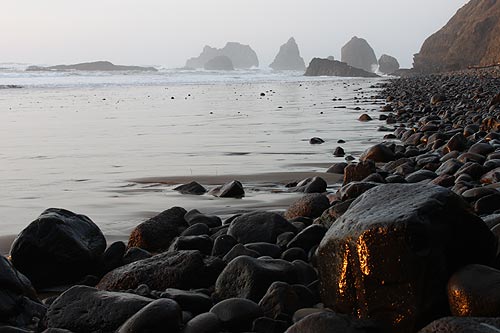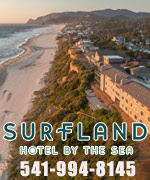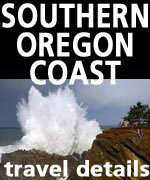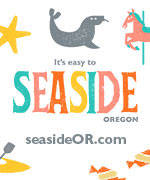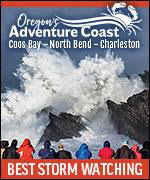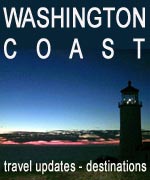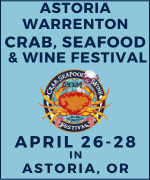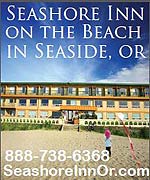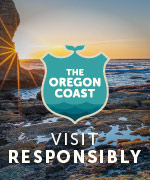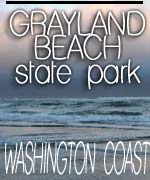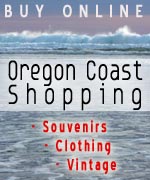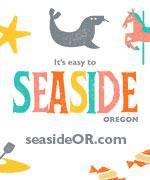How Star Trek Helped Oregon Cost Science News - and Made Me a Better Beach Bum
Published 09/12/2016 at 9:21 PM PDT
By Andre' GW Hagestedt
(Oregon Coast) – As the Star Trek anniversary celebrations wane this week, it's cause for me to pay my own tribute to the show that's now just a few years younger than I am. It made me a better person, and it helped make me much better equipped to do the job of running an online publication about the Oregon coast. (Above: "Star Trek Beach" at Oceanside).
In a roundabout way, the show has even affected this coastline. I know this publication – Oregon Coast Beach Connection – has over the last ten years had an influence on these beaches. I hate to sound full of bravado, but the half a million hits we get per month here have changed a few things, caused people to come out, and informed folks about wild scientific wonders nobody else has talked about (like the green flash, glowing sand, second summer, those mysterious purple waves last year, and the list goes on).
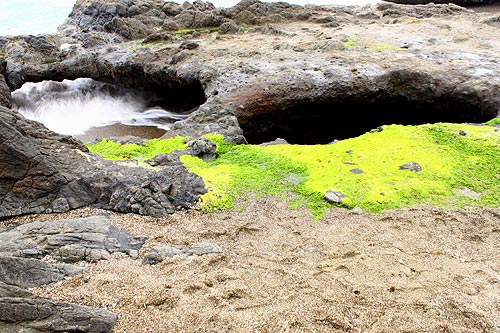
Above: the alien beauty of Yachats
Star Trek sparked a need in me early on to “seek out” those kinds of things throughout my life.
I was almost seven years old when Star Trek went off the air, so I had seen most if not all of them by then. I have vivid memories of playing around Yachats, circa 1970, with my brother and I play-acting Star Trek on those rocky slabs. It wasn't hard to imagine this place as an alien landscape, and I know that fascination and impression sticks with me today.
I know it causes me to see stuff others don't in these beaches. Case in point: I spotted some unique fossil details at Hug Point last year that no one knew about.
Thanks to the show, I sucked down gobs of basic astronomy books by the time I was eight. That undoubtedly veered my future thought processes away from the ignorant pseudo science of things like ancient aliens theories. That would have made a bleak future.
It also exposed me at a very young age to how the world should be: one of equal opportunity. Throughout my life I've never given a second thought to a woman or someone of color as a boss or in power. It's easy to say Trek made me a better person.
Some of my earliest memories are of watching Star Trek with my dad, during its original run. In a moment of revelation, I turned to him and asked him “is this 'tomorrow?' ”
I must've just heard that synonym for the future. He factually answered “yes.” A strange little bonding moment. But I felt I learned a lot from that confirmation.
The show was responsible, however, for a rather dark moment of scientific revelation that still haunts me.
We were watching one of the moon missions – maybe it was, in fact, Apollo 11. At this time, I was used to the Star Trekkian basic concept of all these various people running around a giant ship. So of course, my six-year-old-or-so brain was certain that those news coverage shots that switched between all the folks in Mission Control and the dudes in the capsule were just interior shots of the same rocket sitting on the gantry.
With my heart sinking, slowly knowing the answer, I asked my dad how all those guys in mission control were sitting on a flat surface even though that rocket was pointed upwards. He calmly explained they were on the ground, and only the three dudes were going into space.
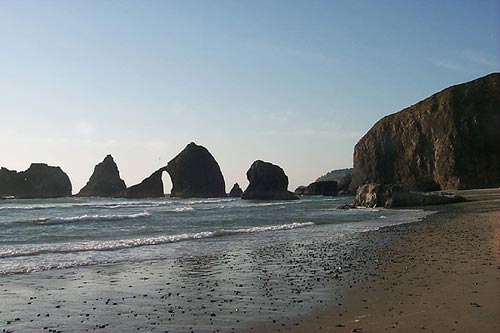
(Above: this arch at Oceanside crumbled in 2004, but it resembled the time portal in "City on the Edge of Forever.")
I was heartbroken. It was the biggest letdown of reality for me. And frankly, it's a feeling that's never left me my entire life. I've never felt very excited about space missions since then. I've always felt like our bar has been set too low as a species.
I suppose I eventually turned to physics, more cutting edge astronomy and the ocean for that sense of mind-blowing wonder. The Oregon coast certainly afforded that – but in person. In 1987, I spotted a strange, red glow on the ocean at night that I've never been able to explain. That set me on a path to interview scientists about it (FYI, it's either glowing phytoplankton or the moon through a break in the clouds, but no way to know for certain).
I saw glowing sand the first time in 1993. The green flash at sunset by 1999. I witnessed waves going the wrong direction in 2012. One year I discovered the beach beyond Oceanside's Maxwell Point is sometimes called Star Trek Beach. Plus, some other formations along the coast sometimes remind me of specific episodes.
These days, the wild, weird discoveries of the beach don't quite come as often as they did in the first seven years of the ten years OCBC has been around. But I'm still “exploring new worlds” around here, being what I call a "professional beach bum.". There are still places to “boldly go” when it comes to the science of this place. Oregon Coast Hotels in these areas - Where to eat - Maps - Virtual Tours - See more Oregon Coast Science.
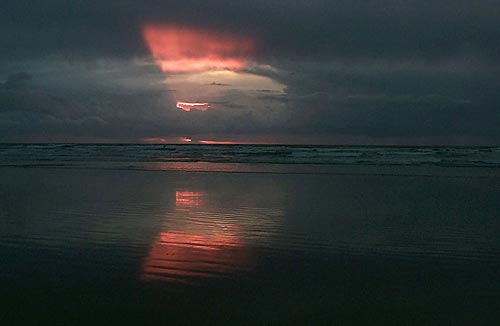
An especially surreal, Trek-like sunset in Seaside, 2006
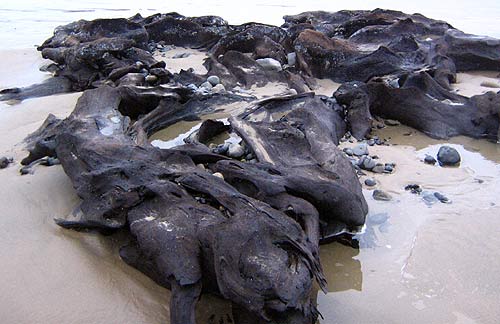
Surreal science: ghost forest stump at Seal Rock (The pizza monster in "Devil in the Dark"?)
More About Oregon Coast hotels, lodging.....
More About Oregon Coast Restaurants, Dining.....
Cannon Beach Lodging
Nehalem Bay Lodgings
Manzanita Hotels, Lodging
Three Capes Lodging
Pacific City Hotels, Lodging
Lincoln City Lodging
Depoe Bay Lodging
Newport Lodging
Waldport Lodging
Yachats Lodging
Oregon Coast Vacation Rentals
Oregon Coast Lodging Specials
LATEST Related Oregon Coast Articles
Likely just before dawn best hour but peak happens during daylight. Weather
Dark Sky Week is Prime Along Oregon Coast: Where and Where Not to Go
General guide to dark sky viewing from south to north coast. Astronomy
Sizable Price Drop, Deals in Lincoln City During Quiet of April on Central Or...
20 perc off at A1 Vacation Rentals across its roster, including Gleneden Beach. Lincoln City specials
Upcoming S. Oregon Coast Events Include Gem Show, History: Coos Bay, Bandon
May 6 talk at Coos History Museum, Mayfly Fest May 17, Bandon Rock / Gem Show June 7,8
Washington Coast Cleanup on April 19 - Coinciding with Oregon Coast's SOLVE E...
From the Puget Sound to Long Beach, alongside Oregon's cleanup. Washington coast events, Seaside events
Astoria's Riverwalk Gets New Lighting, More N. Oregon Coast Roadwork
Delays coming this summer, but the riverwalk has a new look. Seaside, Cannn Beach
April Gets Even Cheaper Midweek at Depoe Bay, Lincoln City: Oregon Coast Deals
Off-season rates plus more at Keystone Vacation Rentals. Depoe Bay lodging specials, Lincoln City hotel reviews, Newport hotel reviews
Washington Coast Begins Week of Clam Digs, April 12 Through 18
Long Beach, Twin Harbors, Mocrocks and Copalis at different times. Washington coast events
Back to Oregon Coast
Contact Advertise on BeachConnection.net
All Content, unless otherwise attributed, copyright BeachConnection.net Unauthorized use or publication is not permitted




